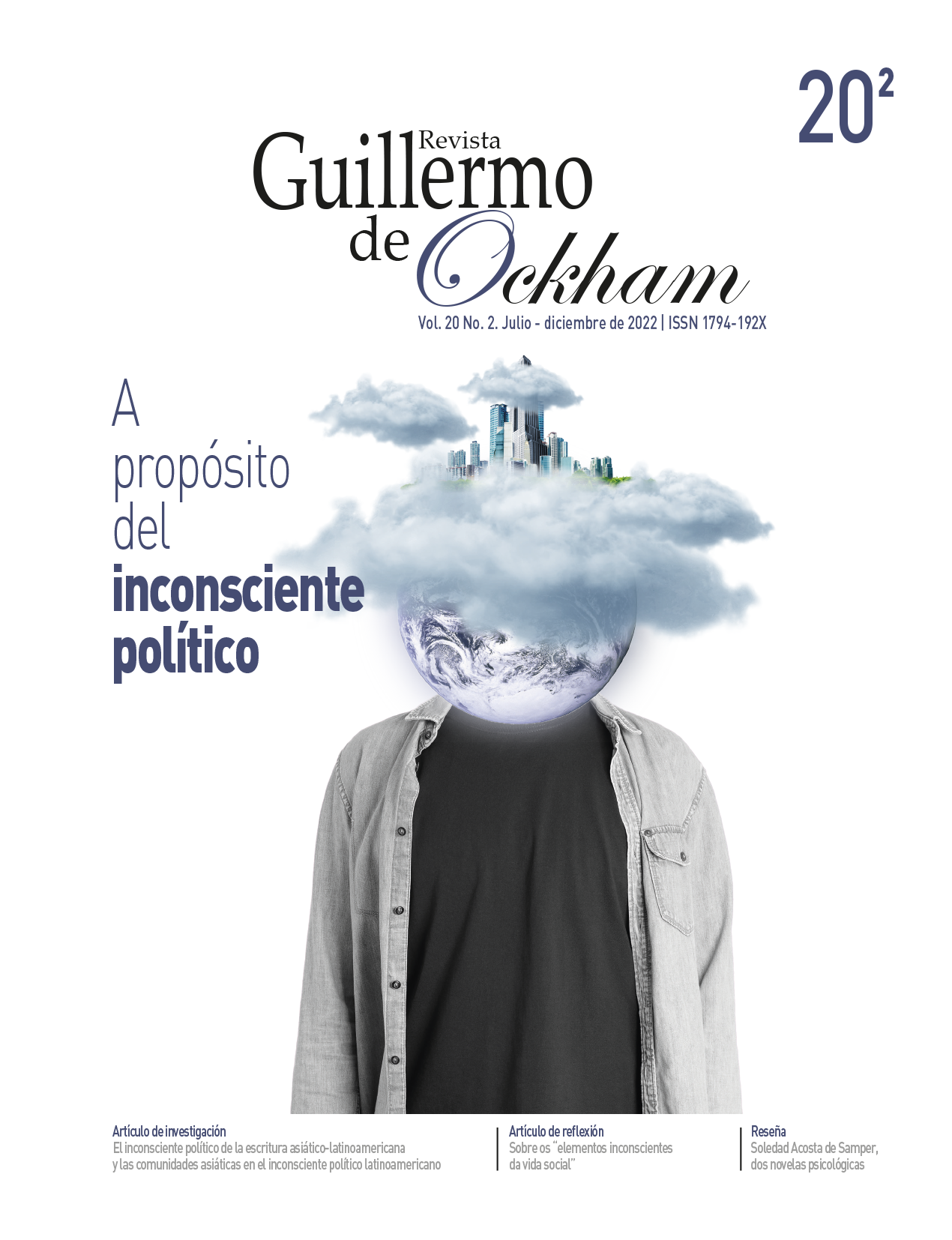The Revista Guillermo de Ockham provides an immediate and open access to its content, based on the principle of offering the public a free access to investigations to provide a global interchange of knowledge.
Unless otherwise established, the contents of this journal has a license with Creative Commons Attribution-NonCommercial-NoDerivatives 4.0 International (CC BY-NC-ND 4.0) http://creativecommons.org/licenses/by-nc-nd/4.0/
- Attribution: You must give appropriate credit, provide a link to the license, and indicate if changes were made. You may do so in any reasonable manner, but not in any way that suggests the licensor endorses you or your use.
- NonCommercial: You may not use the material for commercial purposes.
- NoDerivatives: If you remix, transform, or build upon the material, you may not distribute the modified material.
- No additional restrictions: You may not apply legal terms or technological measures that legally restrict others from doing anything the license permits.
Abstract
Life is pornographic, everything is obscene and there is nothing secret anymore. These were some of Jean Baudrillard´s daring ideas in his latest work, which dealt with the final stage of hyperreality and simulation that we had entered. Despite the ridicule that Baudrillard's work has drawn, his ideas were much more nuanced than just extravagant metaphysical claims designed to baffle and surprise. Our current situation, sexually saturated, permanently connected to the internet and full of existential abandonment, seems to suggest that his diagnosis was correct. This essay will explore how the notion of seduction, as conceived by Baudrillard, offers us a way of understanding the production of reality and a retreat from the obscenity of the world.
Keywords:
References
Baudrillard, J. (1991). Seduction. London: Palgrave Macmillan.
Baudrillard, J. (1995). Simulacra & Simulation. Michigan: University of Michigan Press.
Baudrillard, J. (1995). The Gulf War Did Not Take Place. Bloomington: Indiana University Press.
Baudrillard, J. (2007). Forget Foucault. Los Angeles: Semiotexte(e).
Baudrillard, J. (2016). Symbolic Exchange and Death. London: Sage Publications.
Chiesa, L. (2016). The Not Two: Logic and God in Lacan. Massachusetts: MIT.
Deleuze, G. & Guattari, F. (1993). Anti-Oedipus: Capitalism and Schizophrenia. Minneapolis: University of Minnesota Press
Dreyfus, H. (1992). What Computers Still Can’t Do: A Critique of Artificial Reason. Cambridge (MA): The MIT Press.
Foucault, M. (1976). The History of Sexuality, Volume 1. London: Penguin Books.
Jarry, A. (1991). The Ubu Plays. London: Bloomsbury.
Lacan, J. (1977). The Four Fundamental Concepts of Psychoanalysis. London: Karnac.
Lacan, J. (1999). Encore: On Feminine Sexuality the Limits of Love and Knowledge. London: W.W Norton.
Lyotard, J. F. (1992). The Inhuman. Stanford: Stanford University Press.
Lyotard, J. F. (2015). Libidinal Economy. London: Bloomsbury.
Mauss, M. (1990). The Gift: The Form and Reason For Exchange in Archaic Societies. London: Routledge.
Millar, I. (2021). The Psychoanalysis of Artificial Intelligence. London: Palgrave Macmillan.

































